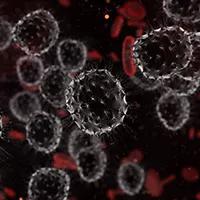
Dr Eisfeld on Timing of Molecular Testing and the Start of Treatment in AML

Ann-Kathrin Eisfeld, MD, discusses factors to consider when deciding whether to start treatment right away or wait for molecular testing results in patients with acute myeloid leukemia.
Ann-Kathrin Eisfeld, MD, assistant professor, director, Clara D. Bloomfield Center for Leukemia Outcomes Research, Division of Hematology, member, Leukemia Research Program, The Ohio State University Comprehensive Cancer Center (OSUCC) –James, discusses factors to consider when deciding whether to start treatment right away or wait for molecular testing results in patients with acute myeloid leukemia (AML).
The decision to start treatment or wait for molecular test results can vary between differenthematologists and oncologists, and it is up to the treating physician’s discretion to decide which approach is correct for each given patient with AML, Eisfeld says. She explains that in many cases, it can be appropriate to wait to allow the test results to help drive treatment decisions; however, she notes there are some exceptions.
If a patient being treated is suspected to have acute promyelocytic leukemia based on morphology or presence of tumor-initiating cells, she will start treatment with all-trans retinoic acid (ATRA), and adjustments can be made following the molecular testing results.
Eisfeld also explains that she will start treatment right away if a patient presents with signs of organ damage, such as compromised respiratory function or a high white blood cell count. Patients who have a complex karyotype, such as those with TP53 mutation, may need to start treatment prior to the conclusion of full molecular testing, she adds, noting that those with TP53 mutations generally do not respond well to conventional chemotherapy.
However, in most other instances, other traditional measures that could eliminate suspicion of a complex karyotype could allow physicians to justify waiting for full molecular test results prior to starting treatment, Eisfeld details.
Getting results for FLT3 or IDH1 mutations prior to starting treatment would be ideal, particularly for older patients, as they may be eligible to receive oral therapy rather than intravenous therapy, Eisfeld concludes.






































